#heroic age of polar exploration
Text
RIP Belgica crew, if you knew what fanfiction writers were doing to the Terror and Erebus crews, you'd probably be jealous.
#currently reading#madhouse at the end of the earth#currently rewatching#the terror amc#belgica#belgica expedition#franklin expedition#the terror#polar exploration#polar history#heroic age of polar exploration#boat media#age of sail#technically age of steam but whatever
115 notes
·
View notes
Photo

Vol.1 of my graphic adaptation of The Worst Journey In The World is coming out 24 Nov.! Visit indienovella.co.uk to preorder worldwide – other international options coming soon.
#graphic novel#history comics#polar exploration#polar history#illustration#comic books#antarctica#heroic age#heroic age of polar exploration#scott expedition#terra nova expedition#the worst journey in the world#twjitw#apsley cherry-garrard#shameless self-promotion
415 notes
·
View notes
Photo
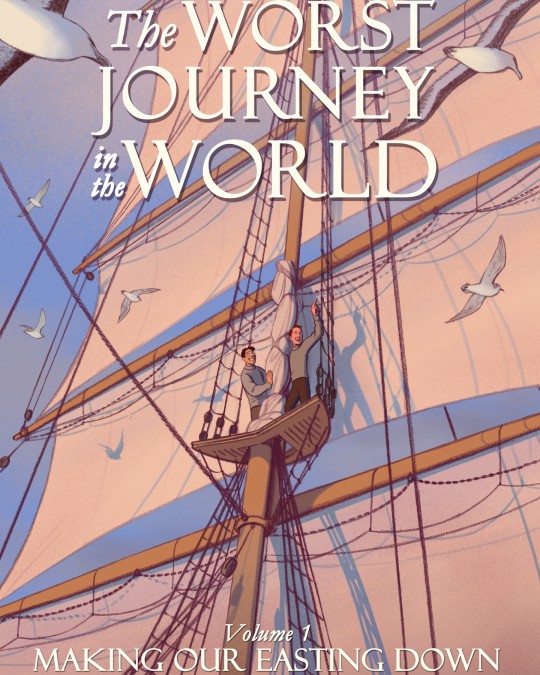
Did You Know this was my original idea for the cover of Vol.1 of my graphic novel of The Worst Journey In The World? In the end, six possible cover options were consulted upon by my Patrons and by the Graphic Novel Club at The Children's Bookshop in Muswell Hill, and it was decided Ponting's Grotto was a more arresting image. I did manage to sneak this into the book as a full-page illustration, though.
#book design#cover design#outtakes#the worst journey in the world#apsley cherry-garrard#bill wilson#edward adrian wilson#birds#tall ships#age of sail#heroic age of polar exploration#sailing
34 notes
·
View notes
Text



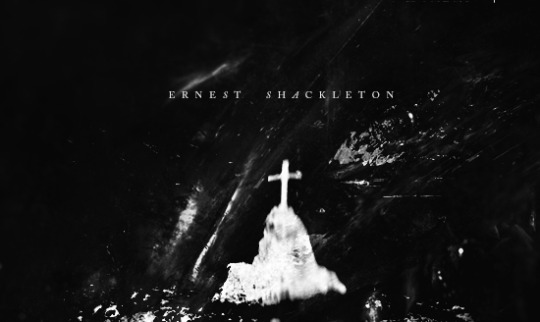
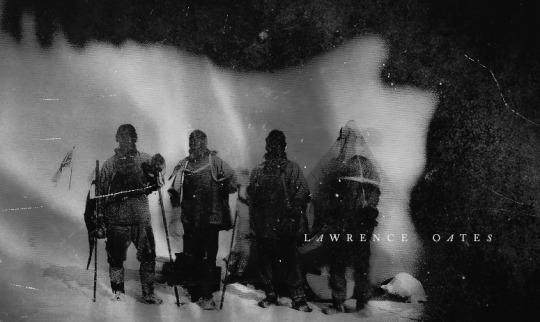

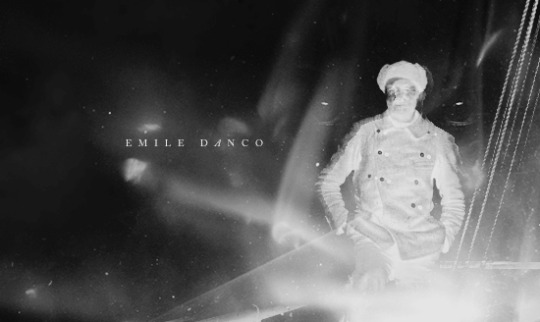
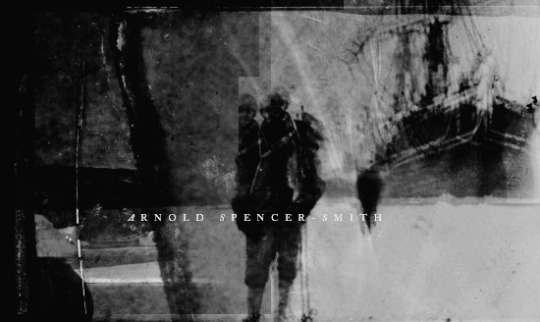

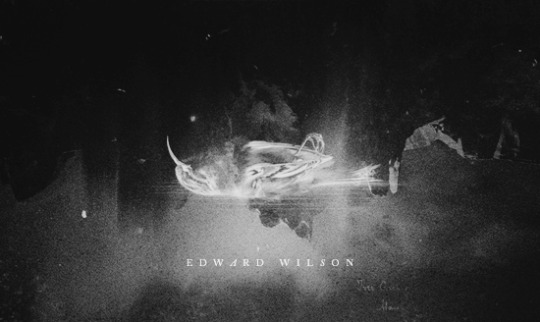
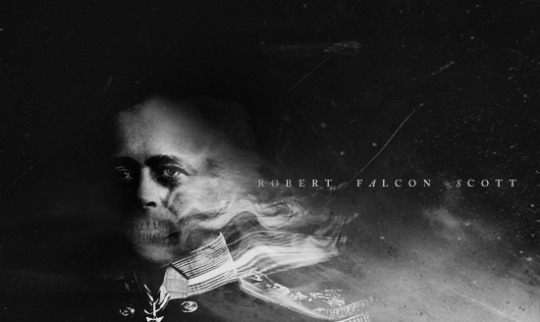
The heroic age of Antarctic exploration
- after The Terror opening credits
#polar exploration#antarctica#heroic age#roald amundsen#apsley cherry-garrard#frank wild#ernest shackleton#lawrence oates#xavier mertz#belgrave ninnis#arnold spencer-smith#hjalmar johansen#emile danco#edward wilson#robert falcon scott#belgica#endurance#terra nova#fram#LOTTA TAGS. LOTTA BOYS.#sorry if the gutters are weird i hate this new post editor so much lmao#my: graphic#*
635 notes
·
View notes
Note
How would you suggest people get started learning about polar expeditions? I read Frozen in Time but I'm at a loss of where to go now 😭 any suggestions?
Hi!!! It depends on which era you're interested in!!
For Victorian exploration including the FE, I always recommend Erebus by Michael Palin, William Battersby's Fitzjames biography, and Barrow's Boys by Fergus Fleming. Now, all of those books have their flaws as many nerds (like me) will tell you, but they are all great starting points and will introduce you to the cast of characters/run of events of that era. Once you've advanced a bit, you could check out Dave Woodman's Unraveling the Franklin Mystery for an intensely detailed look at Inuit testimony; The Spectral Arctic by Shane McCorristine for an academic exploration of ghosts and clairvoyance in Victorian exploration; or Finding Franklin by Russell Potter for an overview of the search expeditions up to the present day. Michael Smith's Crozier biography is also a solid read. (EDIT: I forgot The Man Who Ate His Boots by Anthony Brandt if you want to know more about Franklin himself and his earlier expeditions!)
If you're more interested in the late Victorian/Edwardian era, commonly referred to under the "Heroic Age" umbrella, you have a lot of potential starting points....
That era could be said to have begun in 1897 with the Belgica expedition, one of the most chaotic and insane expeditions of all time. Madhouse at the End of the Earth by Julian Sancton is a RIDE of a book (more like FRATHOUSE at the end of the earth, amirite) and will get you started with two of my favorite figures of the age: it was the polar origin story of Roald Amundsen, and where he met a pre-pole controversy Frederick Cook (HIS SOULMATE).
For more Amundsen after the Belgica, I really liked The Last Viking by Stephen Brown. You could also check out Roland Huntford's biography buuut this blog is a No Roland Zone so I am hesitant to recommend him, even though re: Amundsen he's more legit than elsewhere.
The Worst Journey In The World is a classic for a reason: a really beautiful and detailed first-person account of Scott's last expedition that is a pillar of travel writing and the foundation for much of the historiography that came after. However, you could also start with A First Rate Tragedy by Diana Preston (which I haven't read yet but comes highly recommended) or even Cherry's biography by Sara Wheeler which is really excellent. OH and the graphic novel version of Worst Journey just released its first volume which is a WONDERFUL introduction to the story! Buy it here and support the artist!
I've also really enjoyed all of the other first-person accounts I've read, many of which are free & in the public domain: With Scott: The Silver Lining by T. Griffith Taylor and The Great White South by Herbert Ponting are super interesting and give you a taste of what it was like to really be there.
For Shackleton, definitely start with Endurance by Alfred Lansing and go from there. Shackleton's Forgotten Expedition is a good second step & will get you background on him and Scott (& Wilson). I have had Shackleton: A Life In Poetry by Jim Mayer recommended to me as well but haven't read it yet. After that, Frank Worsley (captain of the Endurance) wrote two books which are great supplements: Shackleton's Boat Journey and another one just called Endurance. And Caroline Alexander's The Endurance is really good too but it's a coffee table book with nice pictures, so grab a hard copy!
And last but CERTAINLY not least, I May Be Some Time by Francis Spufford is the be-all and end-all of polar exploration nonfiction, IMO. I'm just finishing a reread right now actually—I first read it post-Franklin obsession but pre-Scott obsession and honestly, it's an entirely different book once you're crazy about the Heroic Age, so while I have recommended it in the past for people just getting started, and still do, at this point I also kind of want to tell people to maybe wait until you've already reached a certain level of derangement to dive into it.
#polar exploration#there's a bajillion books out there but not all of them are good lol so hope this helps!!!
221 notes
·
View notes
Note
I just took your uquiz (got Madhouse at the End of the World) and I'm obsessed - I think I might have found a new special interest!!! Please talk polar expeditions to me, I'm foaming at the mouth, absolutely feral. Just infodump like crazy please, I'm on my knees and begging
I'm so glad you liked the quiz!!
Apologies for turning this post into a larger primer!
I hope you enjoy Madhouse--secretly I think it's the best result on the quiz (though it's not my own result; that's A First-Rate Tragedy). Madhouse has a bit of everything & if you're looking for truly insane anecdotes to regale your friends with, it's your best bet. A smattering of what you'll find in Madhouse: an army of rats, toxic gases sickening the expedition leader, scientists drawing cartoons about poop and butts, a man being mistaken for a seal at the worst possible time, brutal disregard for cats by a man who would go on to co-found the International Astronomical Union, the invention of light therapy, really bad uses of petroleum jelly....& that's just scratching the surface! And it all takes place during the first overwintering in Antarctica. thisisfine.gif
The one downside (not a downside depending on your perspective) for Madhouse as a starter book is it has nothing to do with Shackleton or Scott, and you'll soon find the majority of the English-language books on the Heroic Age, for better or worse, relate to those two. Madhouse DOES have a young Roald Amundsen (later the first man to the South Pole), who is a FASCINATING figure, and his first trip to Antarctica was often overlooked before this book afaik.
So I chose my three books for the starter quiz very carefully. Madhouse at the End of the Earth by Julian Sancton, A First-Rate Tragedy by Diana Preston, and Endurance by Alfred Lansing are all accessible secondary sources. They are readable (not overly academic) & don't require background info, doing a good job introducing people and terms (polar exploration has a whole associated vocabulary). Just as importantly, they're all exciting & well-paced & gripping! Once you've found your bearings, there's a whole specialist literature of polar history for polar scholars and enthusiasts. Broadly, I break it down thusly:
- Primary source expedition narratives: firsthand accounts of expeditions by people who were there. Within this there are a few subcategories: books always intended to be written by explorers when they returned home (this was a significant source of income for expeditions), like Scott's The Voyage of the Discovery, Mawson's Home of the Blizzard, or Shackleton's The Heart of the Antarctic. There's books not-originally-intended but the author decided to write them years later (The Worst Journey in the World by Cherry-Garrard, Saga of the Discovery by Bernacchi). And then there's diaries that were never intended to be published--often, they were written for the explorer's family, or perhaps to help the expedition leader write the narrative. But they weren't meant to be published verbatim. Time, fame, tragedy, and general interest sometimes led to them eventually seeing publication--this is especially the case for a lot of the Terra Nova diaries, & was most famously done for Scott's own diary, which he had intended to edit into a book, but not to publish in raw form. Providence, of course, had different ideas.
- Secondary source expedition narratives: Madhouse and Endurance from my quiz both fit this category, for the Belgica and Imperial Trans-Antarctic (better known as the 'Endurance') expeditions, respectively. (First-Rate Tragedy I'd moreso call a Scott biography). These are accounts of expeditions written by authors/historians who were not on the expeditions in question. There's a LOT of these, and they vary widely in quality. Some offer new scholarship or cover something that hasn't been covered before; others are...less rigorous. Have a browse at your local thrift store/charity shop/secondhand bookstore. If you're lucky they'll have some polar books. Flip through and see if there's a robust citations section, or footnotes, and ideally in-text citations for quote attributions. This can give you some sense of the quality as you're wading into the sea of books!
- Biographies: Exactly what it says on the tin! Instead of picking an expedition to focus on, these books are about one explorer and his life (almost always "his", though there are a few exceptions like Ada Blackjack). There are, once again, a lot of these! Scott and Shackleton in particular have a lot of biographies. I personally didn't read many biographies before this obsession, and I find them a really interesting format in which the biographer is important too, not just the subject. I'm developing opinions about when and how biographers should include relevant cultural context, the amount of the author inserting their opinion that I prefer and how it should be indicated in the text, etc. Similarly for the secondary sources above, check the indices and citations. I'm constantly flipping back to check sources while reading, one of the reasons I prefer physical to e-books!
- Other: There's always another category, isn't there? There's tons more! Cultural histories like Spufford's I May Be Some Time: Ice and the English Imagination (I recommend you get a few books under your belt before reading that to get the most out of it), travelogues mixed with history like Sarah Wheeler's Terra Incognita, Bea Uusma's The Expedition which flips back and forth between time periods, & more!
Like any taxonomy, there's flaws with the above, and things that don't fit, but that's broadly how I see the landscape!
Tips, tricks, & things to know:
- Polar books are most often found in the "Travel" or "Travel Literature" section. Sometimes you can find stuff in "History" "Biography" or even "Sports" lol. A parallel interest is Mountaineering, so if a place has Mountaineering books, they may well also have polar.
- It can be very helpful to familiarise yourself with the Edwardian era in general -- it's a fascinating cultural history in and of itself, and its the most modern era before the great global "end-of-innocence" of the First World War. Sometimes the things these guys are up to really ARE crazy, sometimes it's just that they're Edwardians and something is lost in the translation.
- Like many subjects historians have been writing about for over a century, polar exploration history authors have their biases. The most common one is whether or not the author likes Robert Falcon Scott. This goes back to a controversial book called Scott and Amundsen, published in 1979 by Roland Huntford. (It's also found under the title The Last Place on Earth, based on its TV show adaptation.) Huntford retells the "race to the South Pole" elevating Amundsen and in the process doing a very good job of destroying Scott's reputation by debunking him as an incompetent bungler. From what I've heard from others (I haven't read it yet, though will eventually for its historiographical value) it's a good source on Amundsen but everything he says on Scott should be ignored due to highly selective quotations and...well, active malice toward the guy. Basically, it's a callout-post/bombshell of a book that has had almost every subsequent historian touching on the topic going to great lengths to debunk in turn. Fwiw, I've also heard people say Huntford's Shackleton biography is good. Just. Don't listen to him about Scott.
- Imperialism motivated a lot of these expeditions, and frankly in my opinion this is something more of the literature NEEDS to talk about! A few that do a good job are Spufford mentioned above, & Larson's An Empire of Ice.
- I'd actually recommend don't start with diaries, bc they usually need some context to understand. Exception? Scott's final entries.
There you go! Happy reading! Also check out @areyougonnabe, she's got some great polar posts!!
#polar exploration#and I didn't even touch on the fictional adaptations#sorry this probably isn't want you wanted but its what ive written!
26 notes
·
View notes
Text
Today for Eighteen-Forties Friday: I purchase and review this goofy-ass Franklin Expedition graphic novel so you don't have to!

The Vanished Northwest Passage Arctic Expedition by Lisa M. Bolt Simons, with illustrations by Eugene Smith, is part of a series called DEADLY EXPEDITIONS with a polar focus; and if I was 11 years old again I would probably love them to death.
From the preview pages alone, I could see that... questionable choices were made, e.g. the portrayal of Jane Franklin as some kind of unaging vampire who is still wearing the dress from her 1816 portrait in 1845.
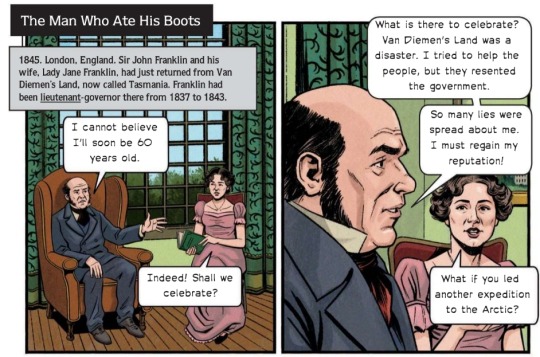
Franklin's officers are referenced from their daguerreotypes (more or less), and we get a nice Fitzjames and Stanley (the latter with with his authentic 1840s juvenile delinquent haircut), as well as a flashback Crozier as the world's most mature 13-year-old.

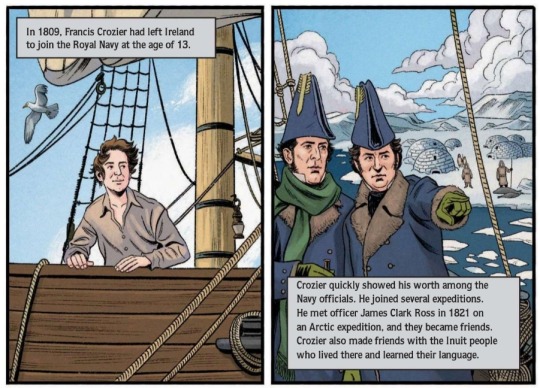
Not every officer with a daguerreotype makes an appearance, and I was very annoyed that this book doesn't have any Henry Le Vesconte. We DO, however, get the Beechey Trio of John Hartnell, John Torrington, and William Braine—who inexplicably go on a mission together and wacky hijinks ensue.
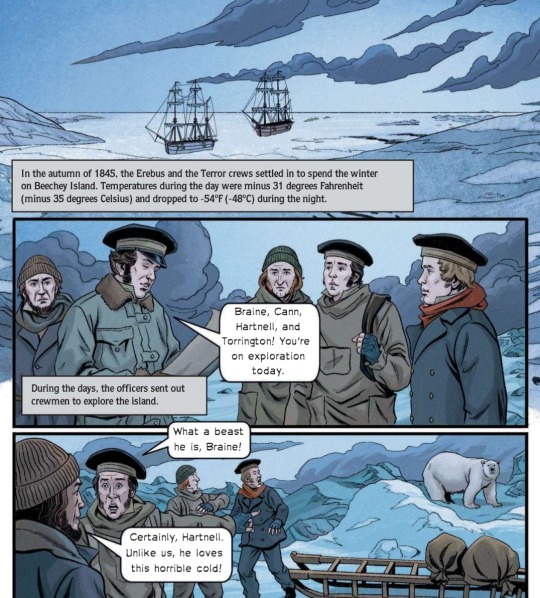
That is a cute Torrington, @entwinedmoon! Although I think @radiojamming will agree with me that the real John Hartnell was more handsome.
Oh yes—and their tragic ends. It's implied that they all catch colds and die instantly in these sequential panels which, God help me, made me laugh out loud.

Way to strip all of the pathos and tragedy from their deaths. If only they had changed into dry underwear!
There is a character who looks just like Ian Hart as Thomas Blanky in the AMC Terror TV show, and the cold weather gear worn worn by the crew also resembles the TV show costuming (which was inspired by Heroic Age of Antarctic Exploration gear).
There is a brief mention of lead poisoning as a contributing factor to the expedition's demise in one panel, but it's otherwise absent—making this book like the opposite of classic kids' Franklin Expedition book Buried in Ice by Owen Beattie, John Geiger, and Shelley Tanaka, which strongly implies that the whole crew is going bonkers from lead poisoning starting in 1846.
#Eighteen-Forties Friday#franklin expedition#1840s#james fitzjames#stephen stanley#arctic expedition#polar#the vanished northwest passage arctic expedition#graphic novel#john hartnell#john torrington#william braine#polar exploration
84 notes
·
View notes
Text
South Georgia Museum
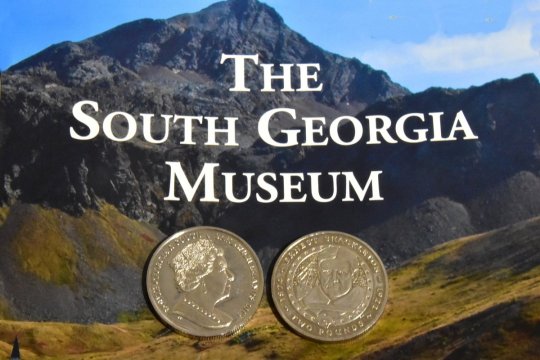
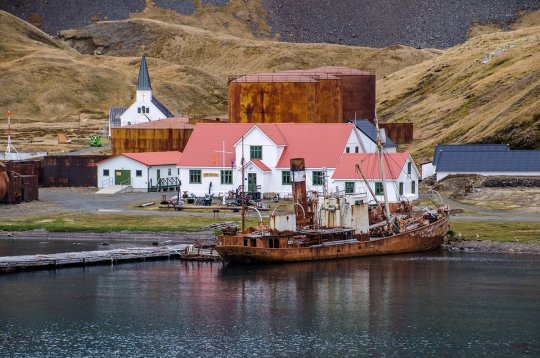
Museum in Grytviken, South Georgia and the South Sandwich Islands

Bronze portrait bust of Sir Ernest Shackleton (by the sculptor Anthony Smith) at the South Georgia Museum, Grytviken, South Georgia. Unveiled in November 2017.
Ernest Henry Shackleton CVO OBE FRGS FRSGS (15 February 1874 – 5 January 1922) was an Anglo-Irish Antarctic explorer who led three British expeditions to the Antarctic. He was one of the principal figures of the period known as the Heroic Age of Antarctic Exploration.
The South Georgia Museum is situated in Grytviken, near the administrative centre of the UK overseas territory of South Georgia and the South Sandwich Islands. Polar explorers Ernest Shackleton and Frank Wild are buried in Grytviken's graveyard. The museum was established in 1991 by Nigel Bonner.
The South Georgia Museum opened in 1992 as a specialised whaling museum, subsequently expanding its expositions to include all aspects of the discovery of the island, sealing industry, whaling, maritime and natural history, as well as the 1982 Falklands war.
Address: PF9R+WXM, Grytviken SIQQ 1ZZ, South Georgia & South Sandwich Islands
Phone: +500 28200
Founded: 1991
Founder: Nigel Bonner
South Georgia Museum - Wikipedia
13 notes
·
View notes
Text
engaging with the heroic age of polar exploration as if it's my own personal soap opera
#carmella enlightens us#*hooting and hollering when douglas mawson shows up in a shackleton biog then immediately texting alix about it*
6 notes
·
View notes
Text
the fact that we don't have photos of earlier polar explorations like we do of the heroic age makes me so sad. I want pictures of hooker doing work surrounded by piles of nonsense in erebus' cabin and of the wreck at fury beach and of the terror and erebus trapped in pack ice and life during that winter. I want pictures of these crews during their daily life, working and living together
#makes me emotional thinking about it#imagine if we had photos of the franklin expedition sledging on king william island?#imagine if we had pictures of the discovery of the geomagnetic north pole??#the terror#(kinda)#polar nonsense#pen's rambles
12 notes
·
View notes
Text
you should take my quiz its very important
6 notes
·
View notes
Text
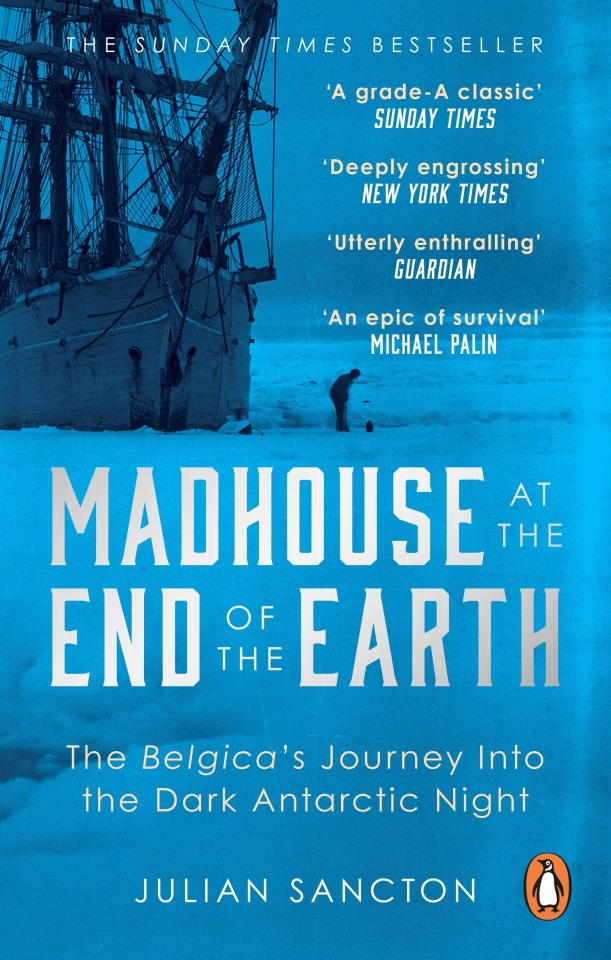


I was tagged by @clove-pinks for a reading meme! Thank you so much, Shaun!
Last read: Madhouse at the End of the Earth by Julian Sancton. On the reading list for one of my local book clubs, and highly recommended by several other polar history enthusiasts on this very website. A fun and fast-paced peek into the expedition that kicked off the Heroic Age of Polar Exploration. #JusticeForFredCook.
Current read: Savage Girls and Wild Boys by Michael Newton. Halfway between a personal essay and a cultural history of both folklore and confirmed cases of feral children. I'm not too far into this, but so far it's interesting.
Next read: Bad Mexicans by Kelly Lytle-Hernandez. I put this one on pause when I started Madhouse, as I was having a little trouble getting into it, but I hope next time will be different! The subject matter is absolutely fascinating.
Wow! This is a really nonfiction-heavy (well, entirely nonfiction) list from my "year of getting back into reading fiction", hahaha. Thanks again for the tag! I'm passing this along to some interesting readers I know like @habemuscarnificem, @brimstone-cowboy, @pilkingtonian, @yetanotherknitter, @bilgewater01, and whoever else would like to do this. :)
#only one of these is boat related but alas#If I did a post of all the boat related books I read this year would people be interested?#madhouse at the end of the earth#savage girls and wild boys#bad mexicans#nonfiction sweep lol#clove pinks#reading meme#about me
5 notes
·
View notes
Text
instagram
Reaching the "vacant staring" part of the process ... probably time for bed.
#graphic novel#cover design#the worst journey in the world#antarctic exploration#polar exploration#heroic age of antarctic exporation#scott#scott expedition#terra nova expedition#am working#art#illustration
58 notes
·
View notes
Photo

Beautiful day in beautiful Dundee with this total hottie!
#rrs discovery#discovery#tall ships#polar history#dundee#scotland#polar exploration#heroic age of polar exploration#barque
17 notes
·
View notes
Photo

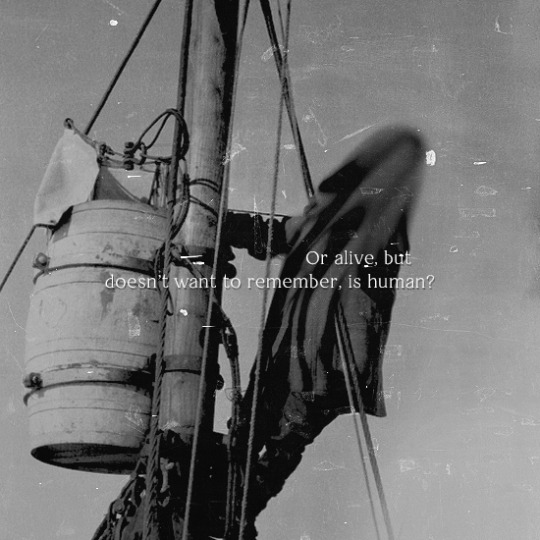
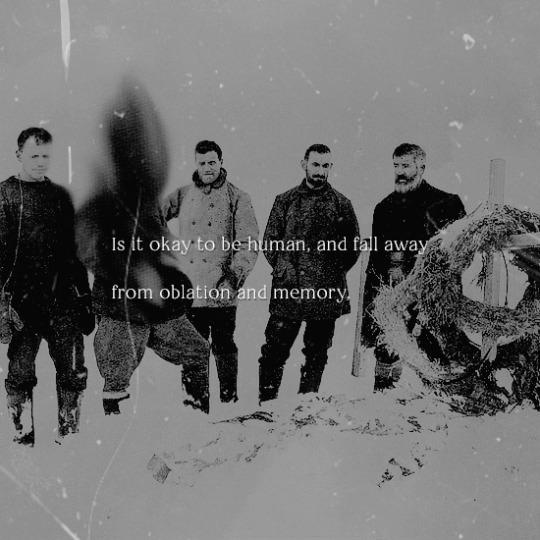
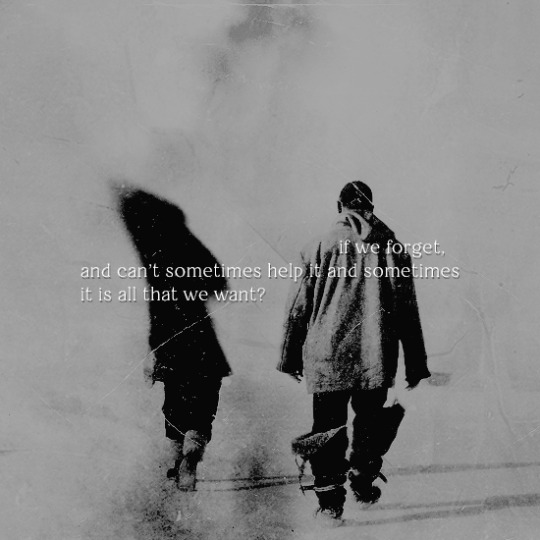
What will I do now, with my hands?
As from a Quiver of Arrows, Carl Phillips
#frank wild#quest#ernest shackleton#polar exploration#antarctica#heroic age#:)#as you do#my: graphic#*
86 notes
·
View notes
Note
Tell us your favourite fact or piece of information about a polar expedition
this is the one that comes up in conversation the most that the people i'm talking to (fellow polar nerds) don't know - but basically, one of my areas of interest is THIS mfer, Sir Clements Markham. now let it be known i don't like him or "stan" him by any means i think he's for the most part a terrible person lolol but i am fascinated by him and have done a lot of research into his life and work:

most people know him as the guy above, the *ahem* controversial old fogey who was more or less the driving force behind the british end of the heroic age of polar exploration. but when he was a teenager, and looked like THIS:

he was on one of the early Franklin search expeditions in 1850-51, on board the Assistance under Captain Ommanney, sister of the Resolute under Captain Austin. this was his last journey with the Royal Navy - he only lasted about five years, he wasn't really cut out for the lifestyle (except for the parts where he got have intense life-destroying crushes on his superior officers) - but it was definitely the most impactful. it left markham with a singular, youthful and optimistic impression as to what polar exploration was all about. homosocial camaraderie, midwinter entertainment, effortful manhauling, geographical discovery, honor and bravery in service to the Empire. et cetera. (can you see where this eventually is going?)
this myth-through-experience grew and grew over his adult life as he worked his way up through the imperial bureaucracy, first at the India Office and later at the Royal Geographical Society, which was to be his most long-lasting professional association.
he participated in the organization of the Nares expedition in 1875, but when that was a resolute failure he bided his time until the 1890s, when support for antarctic discovery began to grow amongst the scientific establishment.
during the time that he was working on drumming up support for what would eventually become Scott's first expedition on the Discovery, in the mid-to-late 1890s, he was working on a, let's say, "private manual of devotion." this was a lengthy manuscript with an equally lengthy title:
James Fitzjames: the story of the friendship, devoted zeal for the service, high souled courage, self denial, and heroic deaths of 129 British Naval Officers and Seamen - A Romance based on information and on facts so authentic and so numerous that it must be very near to the truth.
as you can probably tell already. this was a piece of work. its first few chapters are indeed "based on information" - biographies of Franklin and his officers, often using details Markham received secondhand from men he'd met who actually knew them. (apparently he went around asking everyone he ever met if they'd known anyone on the FE and could they tell him about them which, relatable)
but then after the ships leave Disko and the historical record, the story turns to pure fancy. markham is, as you may have noticed from the title, absolutely obsessed with James Fitzjames to a psychosexual level. he was the "beau ideal" of an officer to Markham. (they never met!!! i might emphasize!!!!!) according to good old clem, if Fitzjames had been in charge of the expedition entire, it would never have perished - the fate that befell them was due to Franklin and Crozier's aged stiffness and inability to adapt.
going into detail about the rest of this frankly bonkers fanfiction would take ALL DAY i swear to god BUT highlights include: a self-insert character named "Baby" who swears fealty to Fitzjames, at least three midwinter theatricals described in detail incl. crossdressing, egregious and disgusting racism against the inuit, pop culture references, a complete and hilarious mix-up of the expedition ranks due to clem not having access to the full roster (jopson as caulker's mate!!!!), and of course lots and LOTS of men dying piously and nigh-erotically in each others' arms. of course there is no cannibalism whatsoever and the men are devoted to the naval hierarchy until the very end.
anyway, the fetishization of youth and inexperience which is visible in the story is quite glaringly tied to markham's selection of scott for the 1901 expedition. at the very least subconsciously, he wanted to recreate the FE with a "Fitzjames" in charge, thinking that would be the key to success.
and to that we can only say: LO fucking L.
121 notes
·
View notes